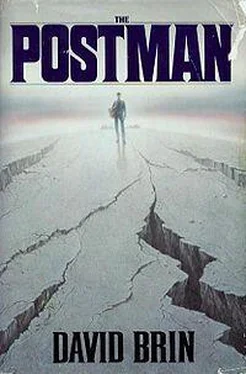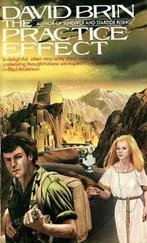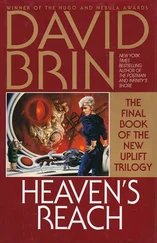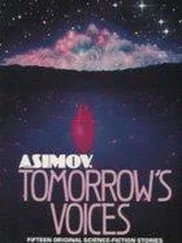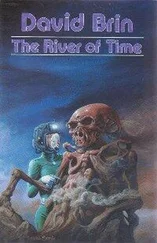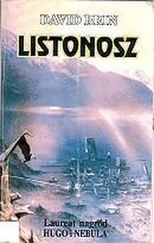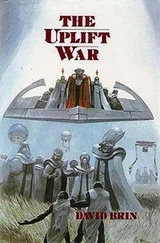What exactly went wrong wasn’t yet clear, as the spring counteroffensive pushed through the first recaptured towns. Perhaps an invader grew suspicious and tortured some poor girl until she talked. Or maybe one of the women fell in love with her fierce barbarian, and spilled her heart in a betraying confession. Dena was correct that history told of such things occurring. It might have happened here.
Or perhaps some simply could not lie well enough, or hide the shivers when their new lords touched them.
Whatever went wrong, the scheduled night was red, indeed. Where the warning did not arrive in time, women stole kitchen knives, that midnight, and slipped from room to room, killing and killing again until they themselves went down struggling.
Elsewhere, they merely went down, cursing and spitting into their enemies’ eyes to the last.
Of course it was a failure. Anyone could have predicted it. Even where the plan “succeeded,” too few of the invaders died to make any real difference. The women soldiers’ sacrifice accomplished nothing at all in any military sense.
The gesture was a tragic fiasco.
Word spread though, across the lines and up the valleys. Men listened, dumbfounded, and shook their heads in disbelief. Women heard also, and spoke together urgently, privately. They argued, frowned, and thought.
Eventually, word arrived even far to the south. By now a legend, the story came at last to Sugarloaf Mountain.
And there, high above the confluence of the roaring Coquille, the Scouts finally won their victory.
• • •
All I can tell you is that I hope this thing doesn’t turn into a dogma, a religion. In my worst dreams I see women taking up a tradition of drowning their sons, if they show signs of becoming bullies. I envision them doing their duty, by passing on life and death before a male child becomes a threat to all around him.
Maybe a fraction of us males are “too mad to be allowed to live.” But taken to the extreme, this “solution” is something that terrifies me… as an ideology, it is something my mind cannot even grasp.
Of course, it’ll probably sort itself out. Women are too sensible to take this to extremes. That, perhaps, is in the end where our hope lies.
And now it’s time to mail this letter. I will try to write to you and Abby again from Coos Bay. Until then, I remain your devoted—
Gordon
“Courier!”
Gordon hailed a passing youth, wearing the blue denim and leather of a postman. The young man hurried over and saluted. Gordon held out the envelope. “Would you drop this onto the regular eastbound sort stack for me?”
“Yessir. Right away, sir!”
“No rush,” Gordon smiled. “It’s just a personal—”
But the young man had already taken off at a dead run. Gordon sighed. The old days of close camaraderie, of knowing every person in the “postal service” were over. He was too high above these young couriers to share a lazy grin and perhaps a minute’s gossip.
Yes, it’s definitely time.
He stood up, and only winced slightly as he hefted his saddlebags.
“So you’re goin’ to skip the hoedown, after all?”
He turned. Eric Stevens stood at the post office’s side door, chewing on a blade of grass and regarding Gordon with folded arms.
Gordon shrugged. “It seems best just to go. I don’t want a party in my honor. All that fuss is just a waste of time.”
Stevens nodded, agreeing. His calm strength had been a blessing during Gordon’s recuperation — especially his derisive dismissal of any suggestion by Gordon that he was to blame for Johnny’s death. To Eric, his grandson had died as well as any man could hope to. The counteroffensive had been proof enough for him, and Gordon had decided not to argue about it.
The old man shaded his eyes and looked out across the nearby garden plots toward the south end of Highway 99.
“More southerners ridin’ in.”
Gordon turned and saw a column of mounted men riding slowly by on their way north, toward the main encampment.
“Sheesh,” Stevens snickered, “look at their eyes pop. You’d think they’d never seen a city before.”
Indeed, the tough, bearded men of Sutheriin and Roseburg, of Camas and Coos Bay, rode into town blinking in obvious amazement at strange sights — at windmill generators and humming electric lines, at busy machine shops, and at scores of clean, noisy children playing in the schoolyards.
Calling this a city may be stretching things, Gordon noted. But Eric had a point.
Old Glory flapped over a busy central post office. At intervals, uniformed couriers leaped onto ponies and sped off north, east, and south, saddlebags bulging.
From the House of Cyclops poured forth rich music from another time, and nearby a small, patchy-colored blimp bobbed within its scaffolding while white-coated workers argued in the ancient, arcane tongue of engineering.
On one flank of the tiny airship was painted an eagle, rising from a pyre. The other side bore the crest of the sovereign State of Oregon.
Finally, at the training grounds themselves, the newcomers would encounter small groups of clear-eyed women soldiers — volunteers from up and down the valley — who were there to do a job, the same as everybody else.
It was all quite a lot for the gruff southerners to absorb at once. Gordon smiled as he watched the rough, bearded fighters gawk and slowly remember the way things once had been. The reinforcements arrived thinking of themselves as saviors of an effete, decadent north. But they would go home changed.
“So long, Gordon,” Eric Stevens said, concisely. Unlike some of the others, he had the good taste to know that goodbyes should be brief. “Godspeed, and come back someday.”
“I will,” Gordon nodded. “If I can. So long, Eric.” He shouldered the saddlebag and started walking toward the stables, leaving the bustle of the post office behind him.
The old athletic fields were a sea of tents as he passed by. Horses whinnied and men marched. Across the grounds, Gordon saw the unmistakable figure of George Powhatan, introducing his new officers to old comrades in arms, reorganizing the frail Willamette Army into the new Defense League of the Oregon Commonwealth.
Briefly, as Gordon walked by, the tall, silver-haired man looked up and met his eyes. Gordon nodded, saying goodbye without words.
He had won after all — had brought the Squire down off his mountain — even though the price of that victory would go with both of them all of their lives.
Powhatan offered up a faint smile in return. They both knew, by now, what a man does with burdens such as those.
He carries them, Gordon thought.
Perhaps some day the two of them might sit together again — in that peaceful mountain lodge, with children’s art hanging on the walls — and talk about horsebreeding and the subtle art of brewing beer. But that time would only come after the Big Things finally let them both go. Neither man planned to hold his breath until then.
Powhatan had his war to fight. And Gordon had quite another job to do.
He touched the bill of his postman’s cap and turned to walk on.
He had stunned them all, yesterday, when he resigned from the Defense Council. “My obligations are to the nation, not to one small corner of it,” he had told them, allowing them to go on believing things which were not lies at heart.
“Now that Oregon is safe,” he had said, “I must continue with my main job. There are other places to be brought into the postal network, people elsewhere too long cut off from their countrymen.
“You can carry on just fine without me.”
All their protests had been to no avail. For it was true. He had given all he had to give here. He would be more useful now elsewhere. Anyway, he couldn’t stay any longer. In this valley everything would perpetually remind him of the harm that he had accomplished in doing good.
Читать дальше
